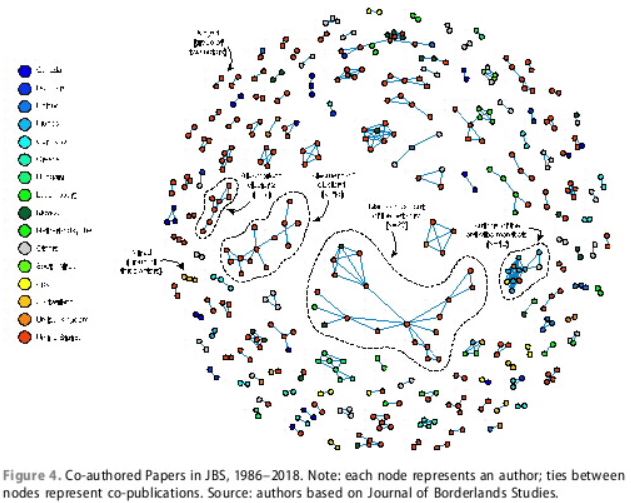
WALTHER – Mapping International Co-authorship Networks in Border Studies (1986–2018)
Olivier Walther, Martin Klatt, & Freerk Boedeltje
Article first published online: 05 NOV 2019 Journal of Borderlands Studies
DOI: 10.1080/08865655.2019.1685402
ABSTRACT: Border studies have become increasingly global over the past two decades. Yet, a network analysis of the articles published in the Journal of Borderlands Studies from 1986 to 2018 shows that less than half of them have one or more coauthors. Unlike in other scientific disciplines, where a growth of co-publications is observed, this proportion has not really changed over the last decade. Our paper also shows that major divisions can be found within border studies, which is no small paradox for a science supposedly cross-border by nature. Despite the overall global increase in scientific connectivity, internationally co-authored papers are still an exception in our field and scholars have a strong preference for publishing within their own country. Instead of a fully integrated community, they form a fragmented network whose main components are mainly located in the United States. Interviews with border experts reveal that various obstacles contribute to the current fragmentation of border studies. In addition to being separated by geographical distance and, sometimes, by actual walls, border scholars must also able to overcome the cognitive, social, organizational, and institutional distance that separate them.
Read the full publication at Journal of Borderlands Studies.